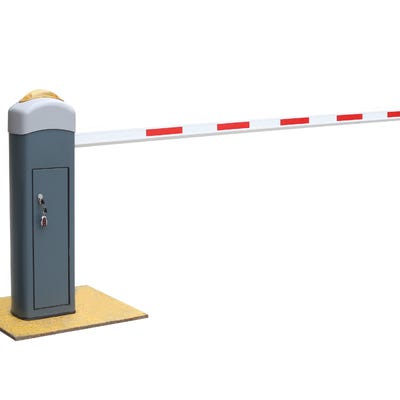Securing Your Premises: The Comprehensive Guide to RFID Access Control Systems
In the modern world, securing premises and managing access efficiently has become paramount for businesses and homeowners alike. RFID (Radio Frequency Identification) technology stands out as a robust solution, providing advanced access control systems that are both secure and convenient. This blog will delve into various aspects of RFID technology, including long-range RFID readers, RFID access control systems, and RFID access cards. We’ll also explore access control RFID barriers, their advantages, and their applications in both business and domestic settings.

https://imai-tech.com/blogs-rfidboombarrier
## Understanding RFID Technology
Long Range RFID Reader and Long Distance RFID Reader
A long-range RFID reader, sometimes referred to as a long-distance RFID reader, is a device capable of reading RFID tags from a significant distance. This is particularly useful in scenarios where users need to gain access without physically interacting with a reader, such as vehicle access at gated communities or large corporate parking lots. These readers can capture data from RFID tags embedded in access cards or other items, streamlining the entry process and enhancing user convenience.
RFID Access Control and RFID Access Control System
RFID access control involves the use of RFID technology to regulate who can enter or exit a specific area. An RFID access control system comprises RFID readers, access cards, and management software that work together to provide a secure and efficient means of access management. The system reads the unique data stored on an RFID access card and grants or denies access based on predefined permissions.
RFID Access Card
An RFID access card is a key component of any RFID access control system. These cards contain an embedded RFID chip that stores unique identification information. When presented to an RFID reader, the card transmits this data, allowing the system to authenticate the user and determine access rights. RFID access cards are durable, easy to use, and can be enhanced with additional security features like encryption.
RFID Security Access Control System
An RFID security access control system integrates RFID technology with broader security measures. This system not only controls access but also enhances overall security by integrating with CCTV cameras, alarm systems, and other monitoring devices. This creates a comprehensive security solution that ensures only authorized individuals can access sensitive areas, while also providing real-time monitoring and alerts.

https://imai-tech.com/blogs-rfidboombarrier
RFID Control System and RFID Entry System
An RFID control system is an overarching term that refers to the entire setup of RFID technology used to manage access, including readers, cards, software, and other related devices. An RFID entry system is specifically focused on managing the entry points, ensuring that access is granted quickly and securely to authorized users.
## What Are Access Control RFID Barriers?
Access control RFID barriers are physical barriers, such as gates or turnstiles, that are equipped with RFID readers. These barriers regulate entry and exit points by reading RFID tags on access cards or other RFID-enabled devices. When a valid RFID tag is detected, the barrier opens to allow access. This system is commonly used in high-security areas to ensure that only authorized individuals can enter.
## Advantages of Access Control RFID Barriers
1.Enhanced Security: RFID barriers provide a high level of security by ensuring that only authorized individuals can gain access. The unique identification information stored on RFID tags makes it difficult for unauthorized persons to bypass the system.
2.Convenience and Efficiency: RFID barriers streamline the access process, allowing users to gain entry quickly and easily without the need for physical keys or manual checks.
3.Contactless Operation: The contactless nature of RFID technology reduces the risk of germ transmission, making it a hygienic option, especially in high-traffic areas.

4.Real-Time Monitoring: RFID systems provide real-time data on access events, enabling administrators to monitor and log entries and exits for better security management.
5.Scalability: RFID barriers can be easily expanded and integrated with additional security measures, making them suitable for a variety of environments.
## Applications of Access Control RFID Barriers in Businesses
1.Corporate Offices: Ensuring secure access to office buildings, conference rooms, and restricted areas for employees and visitors.
2.Data Centers: Protecting sensitive data by controlling access to server rooms and other secure areas.
3.Manufacturing Facilities: Managing access to hazardous zones, production lines, and storage areas to ensure safety and security.
4.Retail Stores: Controlling access to stockrooms and high-value merchandise areas to prevent theft.
5.Healthcare Facilities: Securing patient wards, pharmacies, and operating rooms to protect patient privacy and safety.

## Applications of Access Control RFID Barriers in Domestic Settings
1.Home Security: Providing homeowners with a secure and convenient way to control access to their property using RFID-enabled entry systems.
2.Apartment Complexes: Managing access to common areas, parking lots, and individual units to enhance security for residents.
3.Vacation Rentals: Simplifying guest access to rental properties while ensuring security through temporary RFID tags or cards.
4.Smart Home Integration: Controlling access to various areas of a home, such as garages and garden gates, through RFID technology integrated with smart home systems.
5.Personal Safety: Using RFID-enabled personal safety devices for vulnerable individuals to ensure easy and secure access to help or secure locations.
## Conclusion
RFID technology offers a powerful solution for access control, providing enhanced security, convenience, and efficiency. Whether it’s through long-range RFID readers, RFID access cards, or comprehensive RFID security access control systems, businesses and homeowners can significantly improve their security measures. Access control RFID barriers add another layer of protection, ensuring that only authorized individuals can access sensitive areas. By embracing RFID technology, organizations and individuals can enjoy peace of mind, knowing that their premises are secure and access is managed efficiently.